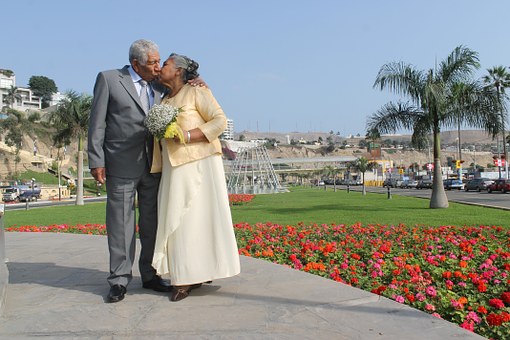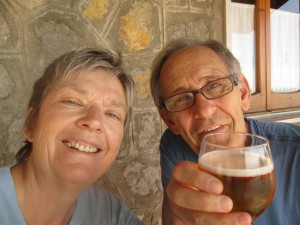Here is a survey about YOUR future when you get older: How do you see the second half of life?
Please go to https://de.surveymonkey.com/r/8NZQ3XV
OUR FIRST COMMUNITY LIVE CONVERSATION – about AGEING
Hear our presentation at the INTEGRAL EUROPEAN CONFERENCE in Hungary,
May 6th, 2016
We were pleased and grateful to witness a lively interest in the topic.
You are invited to join the discussion by filling in the survey above and by joining our Facebook Group http://bit.ly/integralageing
Hear our pre-conference talk about what we will be talking about on May 6th, 2016 in Siofok/Hungary.
Staying young – no, thank you! by Heidi Hornlein
Today the most important thing in life seems to “stay young”. But if you ask me if staying young would be my ideal, I can only say: no, thank you!
Looking into the past
When I look back to my young years, 16, 20 (when I married first time) (when life seemed to be romantic love with lots of obstacles), 27 (when my father died and I finally completed my MA), 32 when I left my marriage to go to Italy to study Italian opera, 40, when I felt the physical need of procreation (which fortunately didn’t happen) – and on and on. Life was a constant struggle, a constant research of something which is missing and which I should get or work for.
Now, more than 20 years later, I feel a freedom and calmness which I never experienced before. Also happiness – yes, that’ts right. And that is not only my personal story!
In the contrary to what people normally think about Ageing: the older we get, the happier we become! Think back to your own young years: were you happy then? Really? Or more often than not confused, insecure, inexperienced, full of phantasies and disappointment when they didn’t work out. And scientific studies show that increasing in years is equal to increasing in contentment and happiness.
Staying young is the solution?
So why do we still feel the need to pretend to stay young? Why do we try to be slim like when we were 20 and wear stuff which doesn’t really suit us, only because young people wear it? Why do we use tons of makeup to hide the maturing skin? Because “staying young” seems to be a request of a society who measures everything through the lense of productiveness and speed – the speed of young people.
Are they really more productive than the older ones? I doubt it. Look back into younger years of your life: you still had to learn many things which today you execute quickly and with ease, while then you spent hours to figure things out and get familiar with them. Speed, yes. Older people need to follow their own rhythm, which often is slower than that of younger people. But this is not bad at all: we see more, perceive more, reflect more, when we give things the right time. This is also true for younger people who often tend to skip these moments of wisdom and jump blindly into Doing.
My choice: being as old as I am
I don’t want to end up saying that being young is “not good”, it has many good and desirable things, but the same is valid for older age. We have gained so much and so many new opportunities open up in every life period. That’s why Ageing is nothing we should fear, but embrace as the time of harvesting our life experience and of creating something new and amazing for ourselves and for others.
“Staying young” might be, in a certain sense, a metaphor for getting older. But personally, I wouldn’t want to go back in my life and start it from scratch, having to pass again through all the crab and all the difficulties which had been along the way. I am glad to be as old as I am. So if Faust offered me to re-do my life, to be young again, I would say: No, Thank you!
MARK’S BLOGPOST on Ageing and Ageism
A peculiarly American insult, to tell someone that they’re history means that their “time” is over, make way for the new blood, take your pension and go play golf. Join a knitting circle!
At Orange, once you are no longer productive, either as a producer or as a consumer (on your reduced income) you become a non-entity economically. Television ads are no longer trying to get YOU to buy anything.
But today that “history” phase of life can last over 30 years, perhaps longer than your “productive” years from 30 to 65 or so. A whole new demographic is emerging that at least can and will vote. So they can’t be ignored completely. And they will not be content with the victim labels of a marginalized group “granted” recognition, however well meaning, by post modern caregivers and charitable organizations.
Like all “de-marginalized” groups, these ”elders” will eventually self organize and form a huge and varied interest group who will not be content with “retirement ghettos” where silence reigns and grandchildren are allowed only for short visits.
And when they do, watch out! Huge changes for all of society will ensue. Obviously who will take “care” of them? And there aren’t enough younger people gainfully employed to endlessly fill the pension plan treasuries for all these old folks. And these 60 to 90+ people want to live independently or in self governing group situations without the usual patronizing guidance of the state.
No longer will they be the “throw-away” people that their own parents and grandparents were. Competent, healthy, and having “out-lived” the values of earlier periods of their lives, when family, career, acquisition and fleeting prestige ruled, they can re-emerge as respected elders, as wise companions, as role models, even as trusted leaders who know how to navigate unprecedented change.
Come join us as we investigate the unexplored possibilities of these new decades of life, as well as the inevitable end of it, that we can design in feedback with our children and grandchildren.
Mark Davenport
Join us at http://bit.ly/integralageing






Leave A Comment